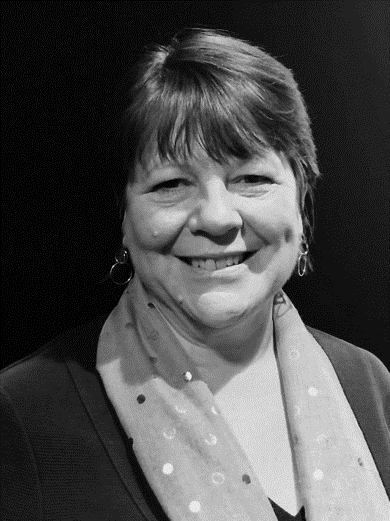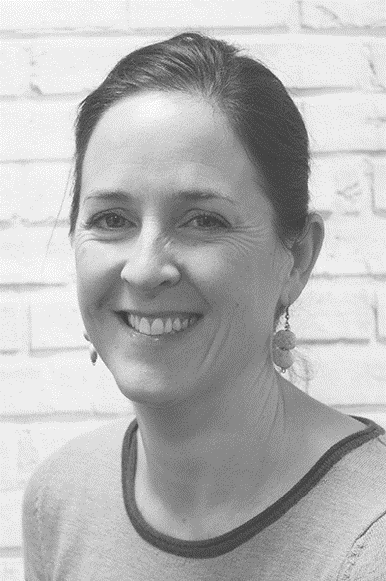
Each year, on 11th February, the United Nations and the global scientific community celebrate the International Day of Women and Girls in Science. Women are underrepresented in science and are often discouraged from pursuing science, technology, engineering, and mathematics (STEM) subjects. Currently, only 35% of STEM students in higher education in the UK are women. The International Day of Women and Girls in Science exists to help change this narrative, by showcasing women’s participation in the scientific community.
In this article, friends and associates from the industry join colleagues from across Mtech Access in sharing what inspired them to pursue a career in the life sciences, what they most enjoy and what may surprise others about their day-to-day role.
We begin with Doris-Ann Williams, Chief Executive of the British In Vitro Diagnostics Association (BIVDA), who has brought about a series of productive relationships between our NHS Insights and Interaction team and her member companies, as they bring their innovative devices to the dynamic UK health environment.
What was your favourite subject in school?
If I am completely honest it was sports, but I also loved biology, chemistry, art, and languages (as I love talking)
What inspired you to pursue a career in science?
Curiosity, I like knowing how things work and also perversity – my family wanted me to follow a very different path!
What is the most surprising thing about working in the life sciences?
How little people know about the laboratory medicine sector when diagnostic tests provide more than 70% of the information used to make clinical decisions about patient care. It’s not all about drugs!
What do you find most interesting about working in the life science (and health) industry?
Not really interesting per se, but I am motivated by making a difference to both the NHS and to people using diagnostics. Even if there is no treatment, people with rare diseases gain benefit from having a diagnosis, not least by the fact that they can share their experiences with others around the world via the internet.

Doris-Ann Williams – Chief Executive of British In Vitro Diagnostics Association
We also put our questions to Liz Cross. Liz is an Advanced Nurse Practitioner and a member of our new NHS Faculty, which provides our pharmaceutical, medical device, and diagnostics clients with insights from the frontline of the NHS.

Liz Cross – Advanced Nurse Practitioner & Mtech Access NHS Faculty Member
What was your favourite subject in school?
Biology and chemistry (obviously sport too – it’s a science). Fortunately, I also did maths A levels which helps me limp through stats.
What inspired you to pursue a career in science?
In all honesty I didn’t want to be a nurse until my third year at university. I wanted to work in health/hospitals but didn’t know where. Nursing gave me a base platform to start from. From there you can be as creative as you dare with your career. I love my job because its ‘real life’. Anyone can learn the theory, but can you put it into practice and guide/react to the patient?
What is the most surprising thing about working in the life sciences?
Truths and facts have a life span of 7 years. You need to keep up to date.
What do you find most interesting about working in the life science (and health) industry?
The most fun I’ve had at work is talking about antibiotics. It’s in the news, it’s in the entertainment media. I talk to patients about it every day. I’ve talked in Westminster about it and next term I’m doing a science workshop in a local primary school.
Next, we speak to Clare Foy who is one of the Directors who looks after our global-level market access projects.
What was your favourite subject in school?
I really enjoyed Biology and progressed to a degree in Applied Microbiology after school.
What inspired you to pursue a career in science?
I find science really interesting as we are still learning and accomplishing so much, especially in the field of medicine.
What is the most surprising thing about working in the life sciences?
I have seen many big changes in life sciences since I started my career, for example diseases such as HIV are now treatable thanks to advances in drug development. I feel that my role supporting companies overcome their market access challenges plays a (small!) part in advances like these and ensures patients are able to access new medicines.
What do you find most interesting about working in the life science (and health) industry?
I love the variety my job gives me – every day I face a new challenge for a different company in a new therapy area.

Clare Foy – Director (Global Pricing & Market Access), Mtech Access
Samantha Gillard, Director at Mtech Access, who project manages our health technology assessments and supports wider global market access strategy, shared her experiences;

Samantha Gillard – Director, Mtech Access
What was your favourite subject in school?
Biology – I loved learning about how the human body works. I wasn’t as keen on the study of plants but was fascinated to learn how the heart and nervous system functions.
What inspired you to pursue a career in science?
A-level biology really sparked an interest in biology and a desire to learn more. I went on to obtain a first-class honours degree in Applied Biology and a PhD in Neuropharmacology.
What is the most surprising thing about working in the life sciences?
The variety and career options that a background in science can provide. Following my PhD I had the opportunity to study in the USA for 5 years as a postdoctoral research scientist, both in academia and in a Pharmaceutical company. This gave me the opportunity to experience life as a scientist in both settings and while I enjoyed my studies and published my work in peer-reviewed journals, I realised that this was not a career I wanted to pursue. I decided to leave the lab and use my PhD and scientific background in a career in market access and have loved every minute since.
What do you find most interesting about working in the life science (and health) industry?
Market access can be very varied and at times very challenging. In any one week I can be working on up to 5 very different disease areas, ranging from oncology to skin conditions, which keeps me very engaged. I find it extremely motivating and rewarding that a project I am directly working on can result in a patient having access to a potentially lifesaving drug.
Karen Pickering from our Health Economics team shared her experiences:
Karen Pickering – Health Economist, Mtech Access
What was your favourite subject in school?
P.E., but also Maths
What inspired you to pursue a career in science?
I wanted a career working with numbers that was also altruistic.
What is the most surprising thing about working in the life sciences?
Everyone comes from a range of backgrounds. It’s not just “scientists” that can contribute to science!
What do you find most interesting about working in the life science (and health) industry?
The fact that healthcare is always changing. There are constantly new drugs and therapies being researched and it’s exciting to be at the forefront of these developments.
Finally, Emily Hardy who joined Mtech Access as Junior Systematic Review Analysts towards the end of 2019, shares her early insights into a career in the life sciences and market access:
What was your favourite subject in school?
STEM subjects were always my favourite at school, particularly Biology, as I enjoyed the logic underpinning them and the direct application of these subjects to the real world.
What inspired you to pursue a career in science?
It has always been important to me that I pursue a career in a field that, first and foremost, I enjoy but also in a field that contributes to helping others in the wider context. Furthermore, the life sciences field is constantly evolving, bringing with it new opportunities and challenges on a day-to-day basis, which keeps the work relevant and engaging.
What is the most surprising thing about working in the life sciences?
Growing up, I always thought pursuing a career in science would mean working in either a clinical setting or a laboratory. It wasn’t until I started working in the life sciences that I was pleasantly surprised to find the field spans much further to a diverse range of roles.
What do you find most interesting about working in the life science (and health) industry?
The diversity of the field has definitely been one of the most interesting things about my role. Whether it be in the disease or treatment we are investigating, the companies we are working with, or the end deliverable we are aiming for, each project has brought with it new challenges and opportunities to learn that I have thoroughly enjoyed immersing myself in. Having recently graduated from university with an integrated master’s degree in Biosciences, my scientific experience to date has been primarily academic. Since starting work at Mtech Access in November, I have loved learning more about the life sciences field from a completely different angle and seeing how my role fits into a much wider network.
Emily Hardy – Junior Systematic Review Analyst, Mtech Access
Visit our careers page to find out more about the opportunities available across Mtech Access.


